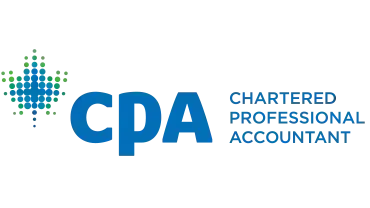How To Pay Yourself From Your Corporation: Dividends Versus Salary
Congrats! You’ve made the move from sole proprietor to CEO of your very own corporation.
Or perhaps you started out your small business incorporated, to begin with.
Either way, here you are — with a company of your very own. You no longer have to rely on a biweekly pay stub or suffer through torturous performance reviews to ask for raises.
Now, you can pay yourself what you want, when you want, how you want.
The trouble is, it’s hard to know the best way to pay yourself — is it better to take out a dividend or salary?
We’re going to go through each option so that you, with the help of your accountant , can weigh the pros and cons and decide on the most suitable path forward.
Dividends
Corporations can distribute their excess cash right back to shareholders in the form of dividends — and you own shares in your corporation. Unrelated to work or performance, dividends are simply a type of investment income. As such, you don’t get any of the deductions or RRSP room attached to earned income.
On the flip side, you can dish them out essentially whenever you want in whatever amount you want. You can literally just e-transfer your personal bank account cash from your corporate bank account and record the transaction
That makes them come last in the paperwork and hassle contest, for which we’re thankful for.
Salary
You just got out of being an employee and now you want to jump right back in? Joking! At least here you have some flexibility — you can decide on a fixed salary where you pay yourself, say $5,000 a month, or a one-time bonus where you decide to take $100,000 of the company.
A fixed salary is helpful if you’re not great at managing money and you want some consistency in life, but it’s nice to know you can reward yourself too (plus there are some nifty tax planning strategies that you can do with bonuses, but we won’t get into that here).
Annoyingly, salaries are much more complex than dividends.
Two major irritations are:
- You pay into the CPP — that’s roughly $5500 a year
- You must set up a payroll account with the CRA, which is a lot of not-so-fun administrative work
Depending on your lifestyle, like if you have young children and are really focused on retirement, those factors may be counterbalanced because:
- You’re eligible to receive the CPP pension
- You get the RRSP contribution room
- You can deduct childcare expenses
- Getting a mortgage may be easier because banks love earned income (and are weirdly snobby about dividend income)
Tax war tie
Suffice it to say that there are no major tax benefits to paying yourself a dividend instead of a salary. Yes, it may appear that you’re being double-taxed — first, you pay 13.5% corporate tax, and then you pay your personal income tax — but the CRA already has it (mostly) figured it out and gives you a dividend gross-up and credit to offset it.
And note, that unlike dividends from major, publicly-traded corporations, the dividends from your small business are ineligible for equally preferential tax treatment.
Similarly, you may think there’s a salary tax advantage because you can deduct it from your corporate income. But it doesn’t end up working out that way because now you have a larger amount to pay personal tax on.
Had you simply paid the 13.5% corporate tax and distributed yourself a dividend you would have less money to distribute, and thus a smaller amount to be taxed.
Basically, it's a wash.
The final word
So if there’s no major tax advantage to one or the other it comes down to your individual life circumstance.
Do you already own a house? Do you have kids in daycare? Would you rather bang your head on the wall before dealing with payroll? How good are you at budgeting? You may even switch between dividends and salaries as your situation changes.
There’s no right answer for everyone, so it’s best to sit down with a tax professional and create a comprehensive plan
If you want our advice on your specific situation, we'd be happy to have that conversation with you. Give us a call at 289-813-0097 and reach John Paul at extension 101, or email info@cmllp.com.
JPM Services
Keep more of your hard earned money.
Information is one of the biggest keys to success when it comes to owning and operating a small business.



